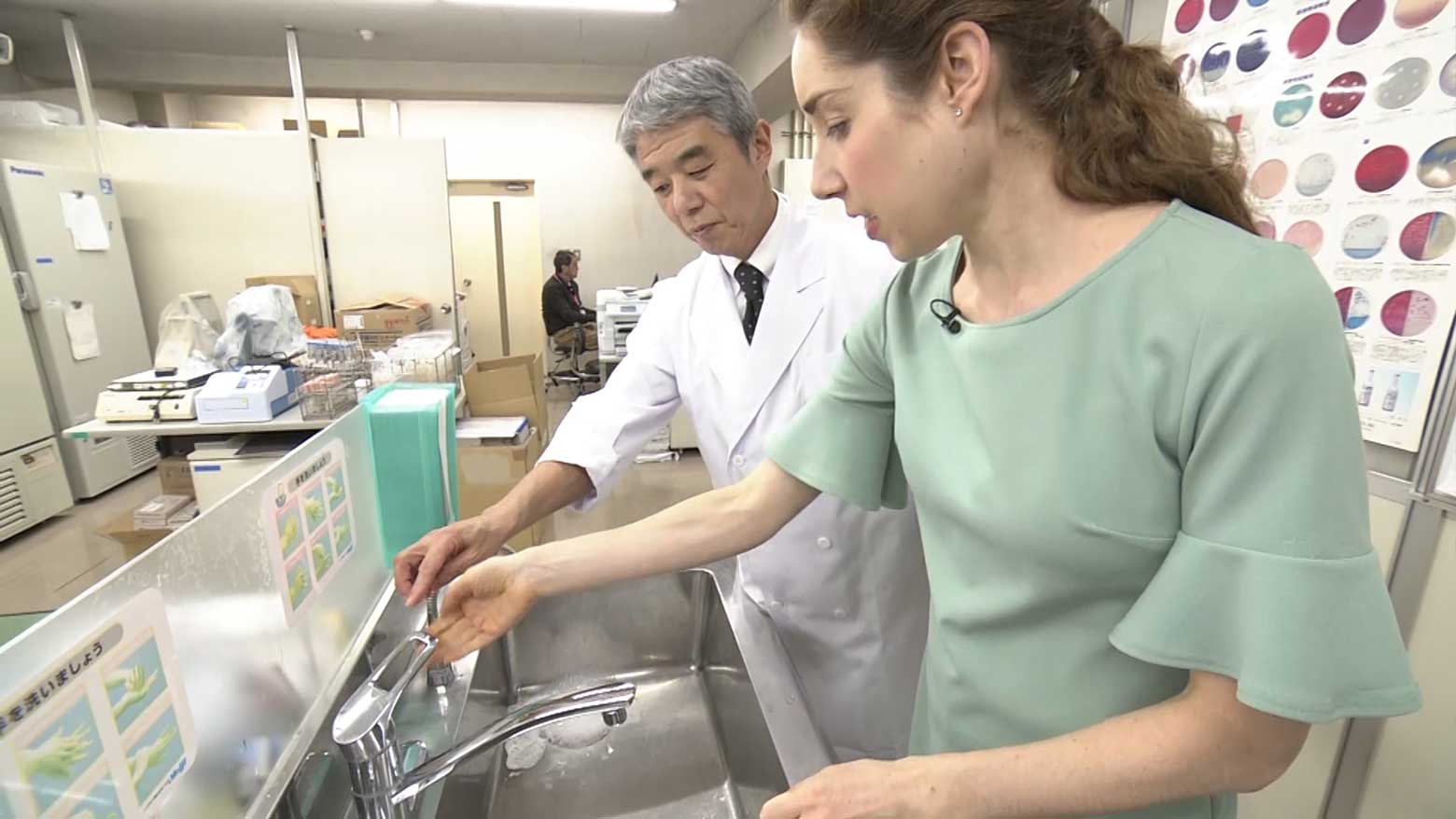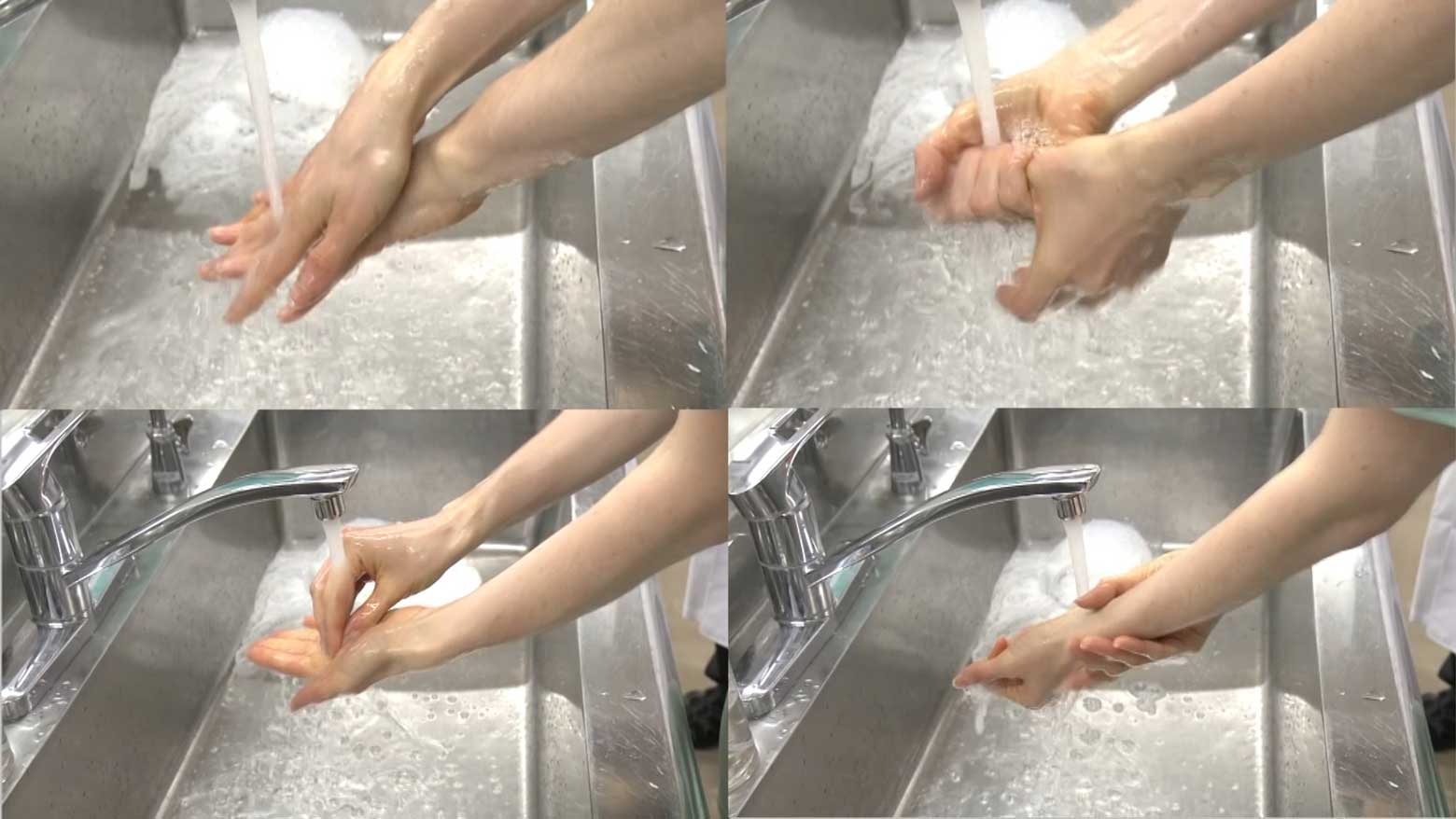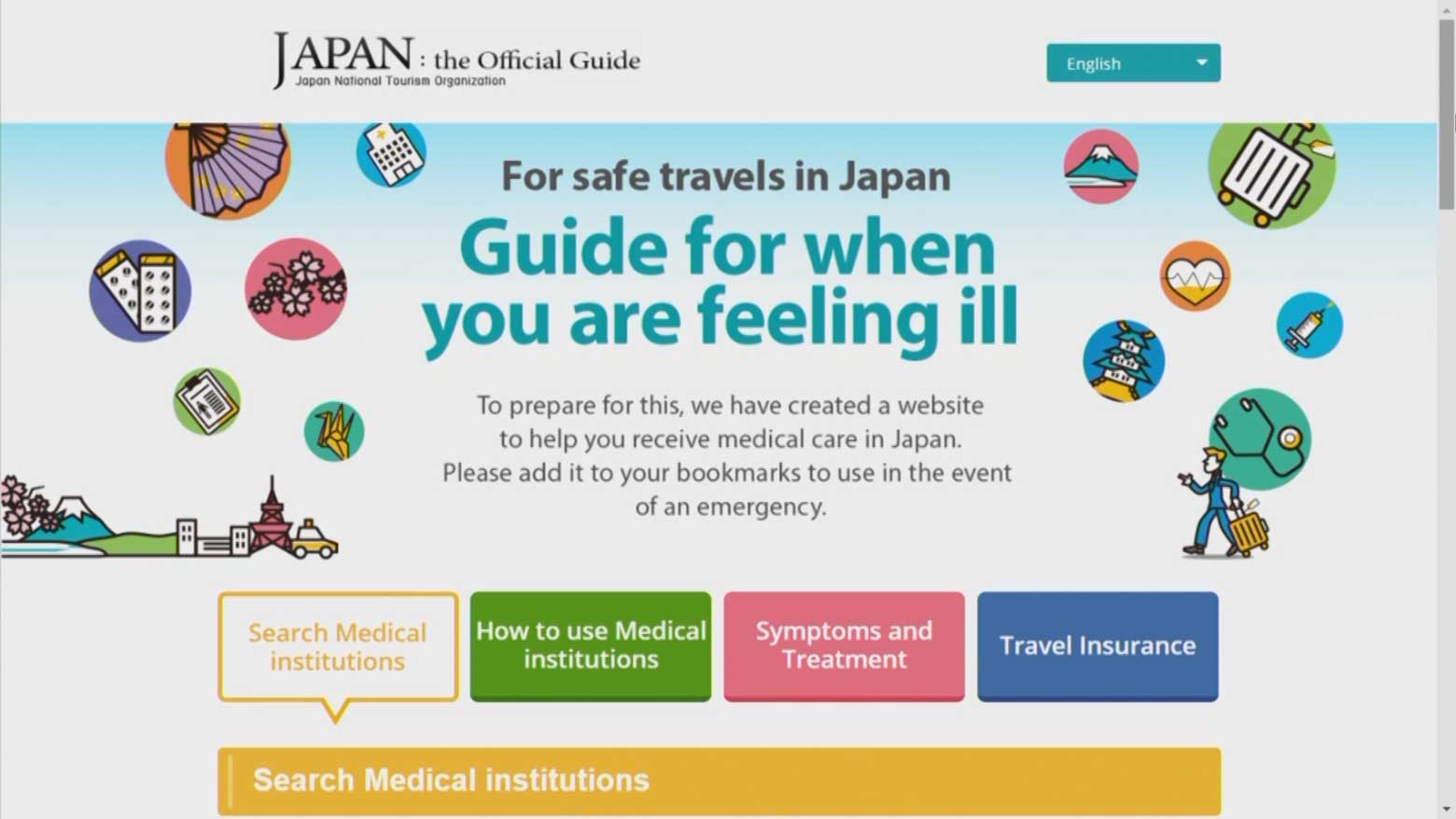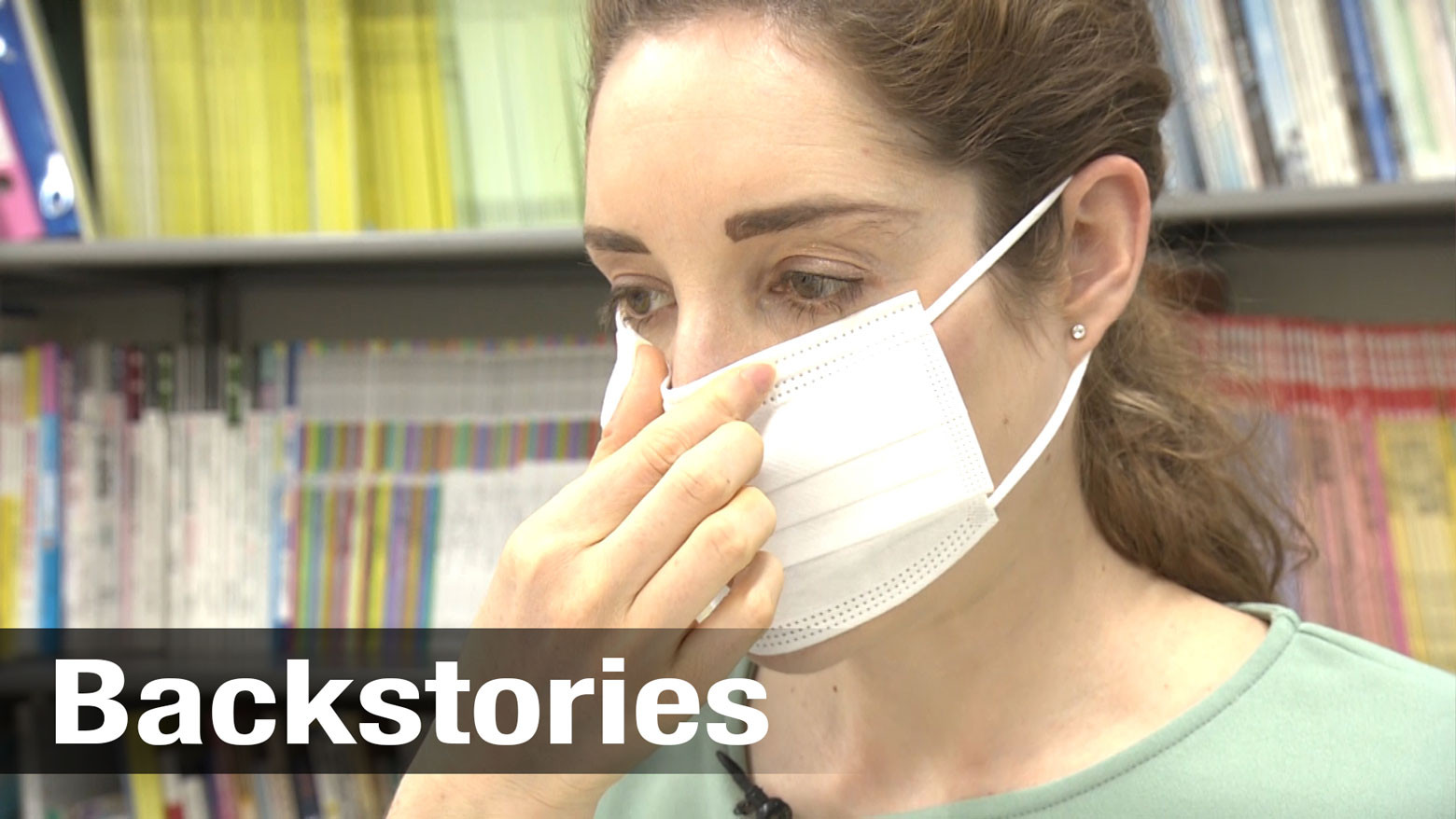Dr. Intetsu Kobayashi, a specialist in infection control and prevention at Toho University in Tokyo, walked us through the two precautionary measures recommended by Japan’s Health Ministry.

1) Wash hands
We’re not talking about a quick rinse. “If you wash your hands correctly, it will take about 30 seconds,” Dr. Kobayashi said. Using plenty of soap (he used six pumps’ worth!), focus on washing between the fingers, finger tips and under the nails. Make sure to include your wrists, too.

2) Wear a face mask
Now that your hands are clean, cover your mouth, nose and chin with the mask and make sure there are no gaps between your face and the mask. Press the mask down over your nose to create a seal.
While wearing the mask, avoid touching it. Do not re-use single-use masks. To remove it, take the mask off from behind using the ear loops, and discard immediately in a closed bin. Wash your hands after.
A note about masks - they don’t keep out viral particles, Dr. Kobayashi said. The coronavirus is spread by droplets expelled through coughing or sneezing or by touching your mouth or nose after touching surfaces that have the virus on it. So masks keep you from touching your face and possibly spreading the virus, and they protect you from droplets from other people.
Masks may not be a common sight in North America or Europe, but they’re frequently used in Asia - particularly during hay fever season - and are often seen when traveling on packed trains or walking around densely crowded areas like Tokyo. Many people who are sick wear masks as a form of etiquette to keep others healthy.

The Japan National Tourism Organization also has a hotline providing information in English, Chinese and Korean 24 hours a day.
The hotline can be reached at 050-3816-2787.
(From overseas: +81-50-3816-2787.)

